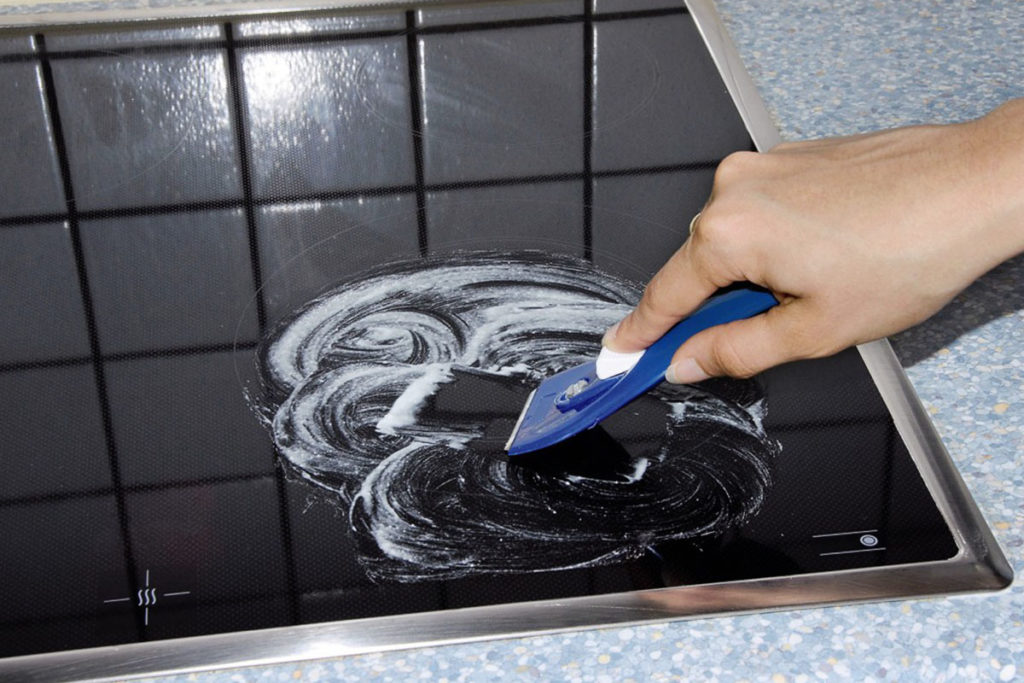
Rating of the best glass ceramic cleaners for 2025
Increasingly, people began to give preference to glass-ceramic hobs. They look solid and fit into any kitchen interior. However, it is worth noting that glass ceramics require careful maintenance. It should be washed only with mild detergents, otherwise the surface may be damaged and lose its attractive appearance.
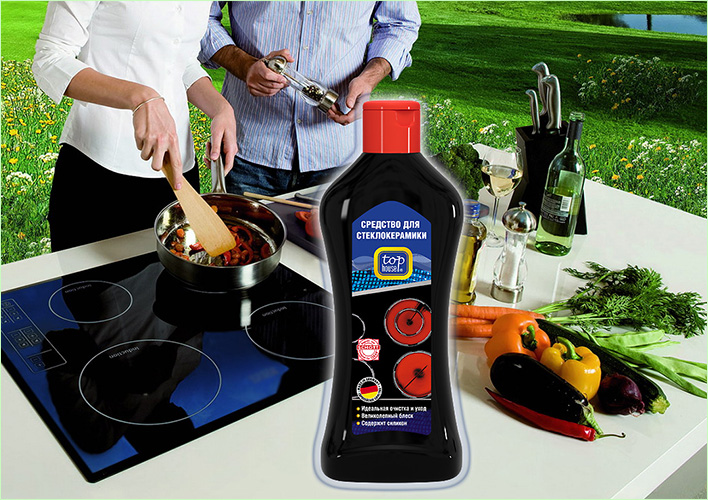
Content [Hide]
Features of glass-ceramic surfaces
For a better understanding of how glass ceramics can be cleaned, it is necessary to familiarize yourself with some of the properties of this material.
Ceran is the basis for the production of hobs. Its main distinguishing features are a high level of impact resistance and a low degree of thermal expansion.
Most often, glass-ceramic stoves are equipped with halogen burners. Alternatively, the manufacturer can use the Hi Light system. In the latter case, the stove is heated by a special tape, which is twisted into rings. It is made from a special alloy.
In appearance, the glass-ceramic stove is distinguished by its perfectly smooth hob and always looks solid and presentable. However, with constant use, stubborn stains of grease and soot appear on the stove. In order for the unit to always remain clean and pleasing to the eye of the hostess, you need to know how and with what to clean it. Thanks to this, the stove will always be like new.
Features of cleaning glass ceramics
Before you start washing the glass-ceramic surface, you should familiarize yourself with the rules for caring for it.
Recommendations for cleaning glass-ceramic surfaces
Glass-ceramic hob requires a delicate approach to cleaning the hob. In order not to spoil the appearance of the product, as well as to prevent the frequent appearance of pollution, it is worth adopting the following recommendations:
- It is better to remove the resulting stains immediately during cooking, otherwise they will dry out and leave their unattractive mark for a long time. Washing old stains is much harder.
- You can clean the stove only with the help of special soft products and cloths. Do not use abrasive cleaners or sponges.
- Do not put plastic containers on the stove, and even more so do not try to cook anything in it.
- If you need to move the pan, it must be lifted, otherwise large scratches will remain on the glass-ceramic surface, spoiling the entire appearance of the stove.
- To keep the original appearance of the product, you need to wash or at least wipe it after each cooking. So pollution will not dry out and eat in - it is easy and simple to remove them.
Subject to these tips, the stove will delight the hostess with its solid appearance throughout the entire period of operation.
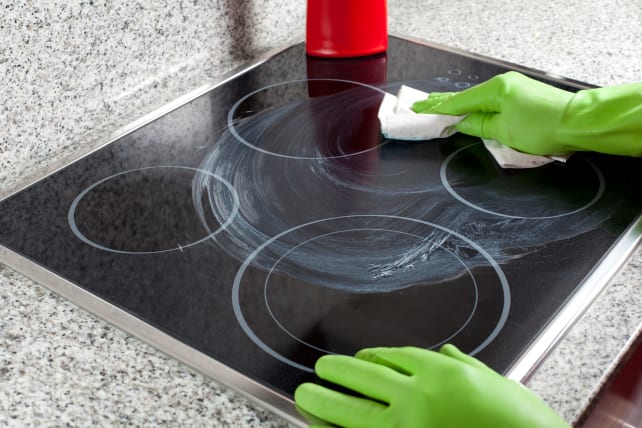
What materials and tools are suitable for cleaning ceramic surfaces
Glass ceramic products require special care. Not every cleaner and tool is suitable for this. Most of them have a very aggressive effect, due to which their high efficiency in cleansing is due. For glass ceramics, this is not acceptable.
In addition, the touch thermal panel is very sensitive to dirt and stress, so you need to wash the stove regularly.
Glass ceramics cannot always look perfectly clean, unless they are used at all. On the glossy surface there are many different traces. It's not just runaway soup and grease splashes. Water droplets and even fingerprints also remain on the surface. All this spoils the appearance of the product.
To make it as easy as possible to care for a glass-ceramic stove, follow a few simple rules:
- It is better to wash or wipe the electric stove immediately after its surface has cooled down - it is much more difficult to remove old dried dirt.
- You should not check the degree of heating of the burners with your fingers - for this, the manufacturer provides special indicators.
- For washing the surface, only professional products intended for glass ceramics or folk methods are suitable.
- Cooking should be done in new pots that do not have soot on the bottom, which can damage the surface, making it even more difficult to clean.
- Starting to cook something, you need to make sure that there are no stains on the stove, if there are all small stains, it is better to wipe them right away before they are baked.
- Do not use aluminum pans - they have a bad effect on glass ceramics.
Important! By replacing the old stove with a glass-ceramic one, you can forever forget about metal brushes and abrasive cleaners.
When scratches appear on the stove, its service life is reduced, and the dirt that gets into the micro-scratches will forever spoil the appearance of the electric stove.
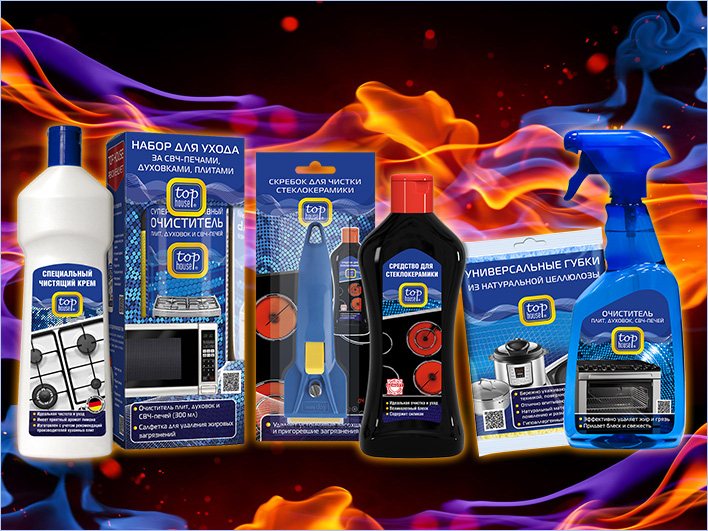
Recommended wipes and sponges
Manufacturers of glass-ceramic stoves prohibit cleaning them with various lint-free fabrics, washing sponges, and there is no need to talk about metal tools. Even branded products from well-known companies such as Indesit, Bosch and others are not suitable. Laundering pollution makes it difficult.
But there are other cleaning products and tools that are suitable for caring for glass ceramics:
- When the electric oven has not yet cooled down, food remains, scraps of foil, etc. can be removed using a special scraper.You can buy it at any hardware store. It must be used very carefully so as not to scratch the tempered glass.
- You can wash stains and dirt with a melamine sponge. This tool is the most popular and safest for tempered glass. You just need to wet the sponge a little with water and erase the dirt like an eraser. Cleaning with a melamine sponge is also the most budgetary.
- Household napkins, for example, Hostess, do an excellent job with small dirt, do not scratch and absorb water well.
- Suitable for cleaning tempered glass and steam cleaner. The hot stream literally dissolves dried dirt. After its application, all dirt can be easily removed with a household napkin.
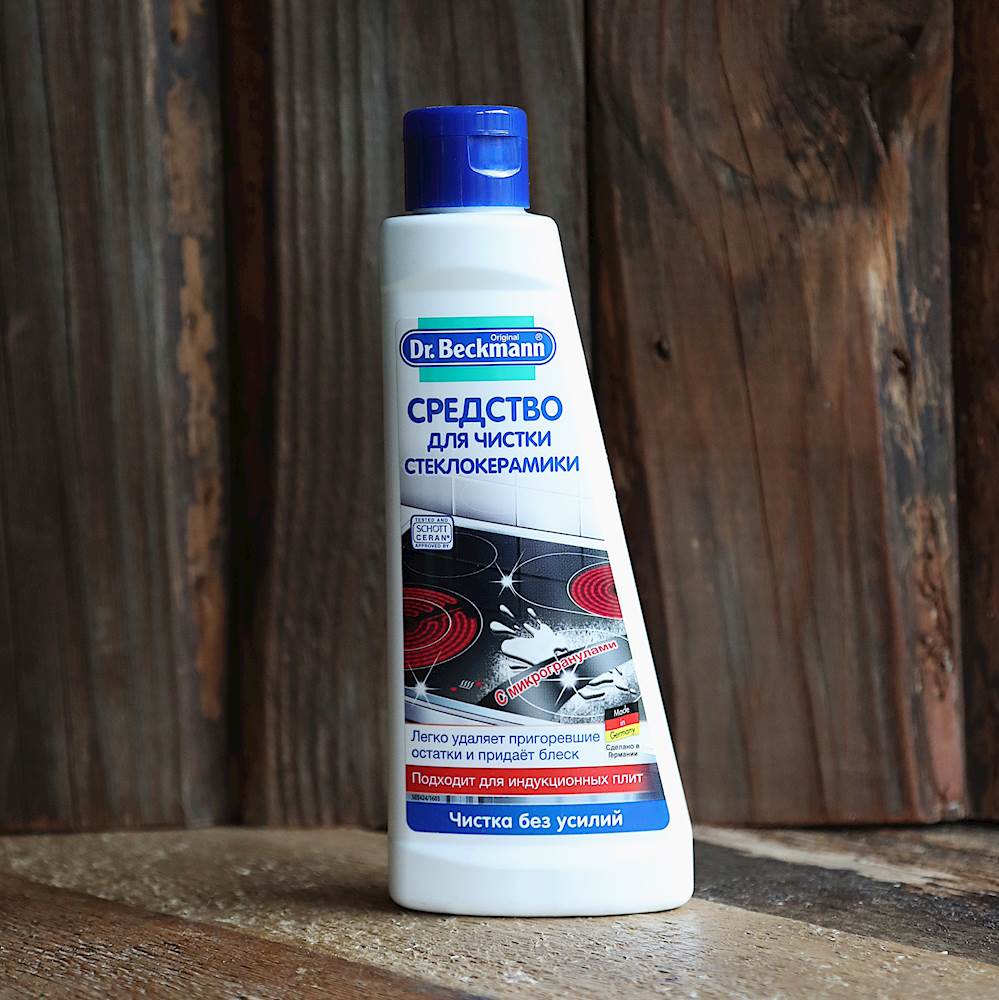
Advantages and disadvantages compared to folk methods of cleansing
If once chemical detergents were considered terrible, now almost every housewife uses them, thereby maintaining her home in perfect cleanliness. There is a huge selection of household chemicals on the market, and they all have their advantages and disadvantages.
Advantages:
- cleaning surfaces does not take much time;
- affordable price;
- high purification efficiency;
- safe composition, both for surfaces and for the environment.
Flaws:
- require careful handling.
The best cleaning products for glass ceramics
Manufacturers of glass-ceramic stoves produce not only the appliances themselves, but also products for their care. Glass-ceramic first appeared in restaurants due to its simple application, and cleaning products began to be called professional.
Selena-extra
votes 21
The manufacturer claims that the components of the liquid or powders are able to cope with any kind of pollution, and without harm to the skin of the hands.However, with frequent use, it is still recommended to work with gloves. Shake well before use. With the help of this household chemicals, even old, hard-to-remove dirt stains can be removed without much effort. It is worth noting that the composition includes a small amount of silicone, so it will not work well to polish tempered glass.
Average price: 115 rubles.
- removes old stains.
- little silicone, it will not work to polish.
Domax
votes 8
Suitable for daily cleaning of glass ceramics. It is not able to cope with old stubborn stains on its own. In this case, additional washing tools will be required. The composition includes a fairly large amount of silicone, so it polishes perfectly.
The average price is 175 rubles.
- suitable for daily cleaning;
- Lots of silicone in it.
- does not cope with the old, ingrained plaque.
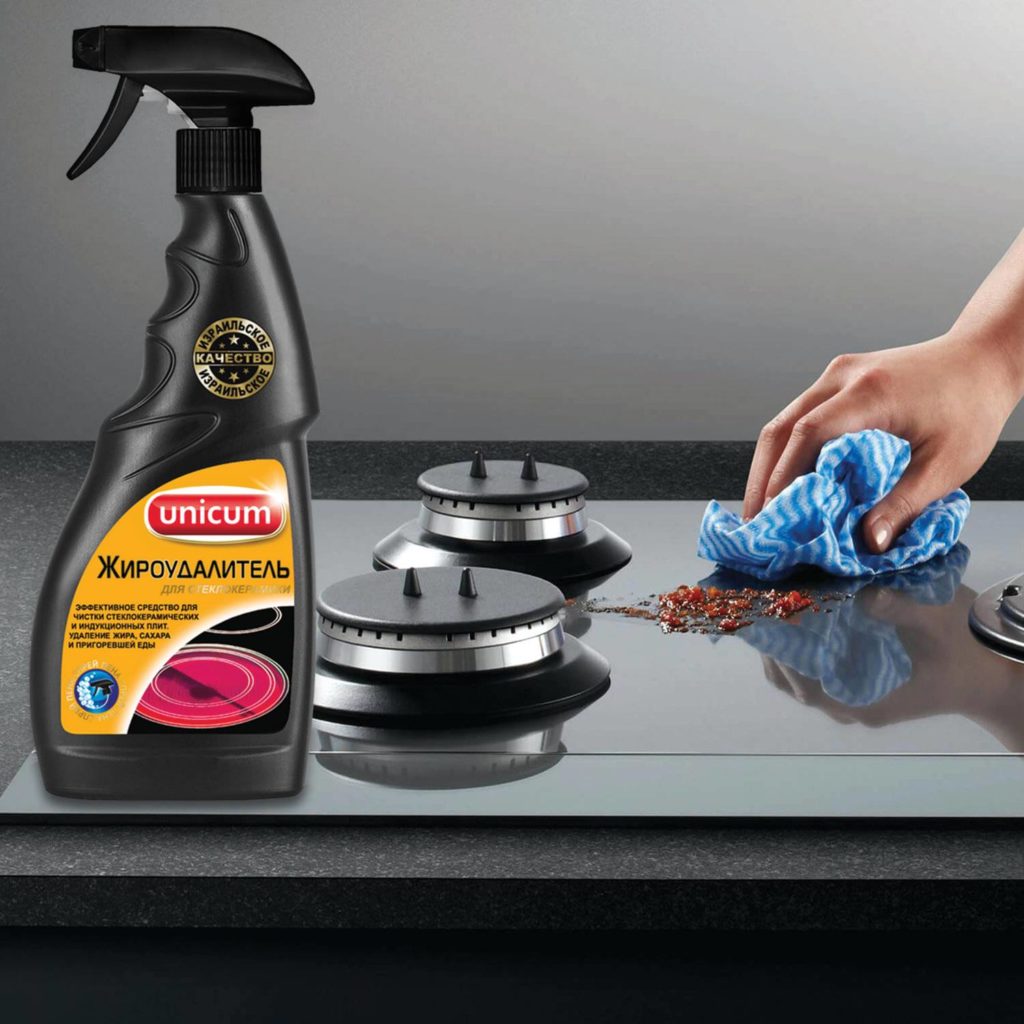
Unicum
votes 24
The gel instantly copes with small stains of grease and is excellent for cleaning glass ceramics. A thicker fat layer will take a little time to dissolve. However, cleaning is still quick and without much effort and energy.
The average price is 305 rubles.
- affordable price;
- well distributed over the surface;
- suitable for cleaning tempered glass.
- due to the presence of aggressive components, it is necessary to work with gloves;
- does not cope with old soot.
Bagi Schumann
votes 5
The concentrated gel quickly dissolves grease and stubborn stains. It can be used both for cleaning appliances and utensils. Due to the presence of aggressive components in the composition, it is worth working with gloves.The manufacturer also recommends avoiding getting the gel in the eyes, and ventilate the kitchen after cleaning.
The average price is 305 rubles.
- high efficiency;
- speed of impact;
- economical consumption.
- very strong smell, which sometimes even requires rinsing with vinegar.
Aerosol Top House
votes 7
The product is presented in the form of an aerosol. To clean the surface, you need to spray it, and wait for the contaminants to dissolve within an hour. After that, all stains are removed easily and quickly. Cleans delicately, while maintaining an attractive appearance of the product.
The average price is 325 rubles.
- copes even with old stains of fat;
- economical consumption;
- original look - foam.
- high price.
CJ Lion
votes 1
It is produced in the form of a spray from a Japanese manufacturer, and is designed to clean dirt from glass-ceramic products and kitchen surfaces. The spray unobtrusively smells of orange. It does not contain overly aggressive components, therefore it is completely safe for the skin. Produced in bottles of 400 ml with a spray bottle for ease of use. The spray is designed for everyday cleaning, so it is difficult to wash off especially old greasy dirt.
The cost is 200 rubles.
- light orange fragrance;
- non-aggressive composition;
- inexpensive price;
- production of a famous Japanese brand.
- does not cope well with old fat in the kitchen.
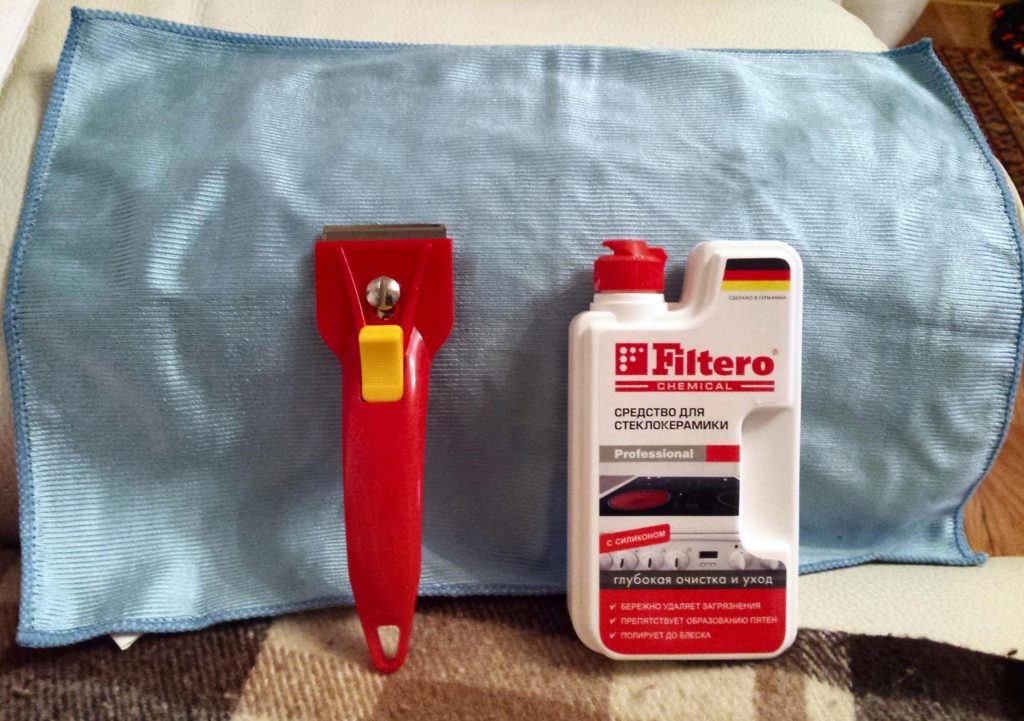
filtero
votes 11
Cleaning agent from a German manufacturer for easy removal of grease on glass-ceramic surfaces in the kitchen. It not only cleans well, but also polishes the surface, giving shine.The composition does not contain substances that can scratch the surface of the plate, so the product is safe to use. Filtero very carefully removes grease and food residues that accidentally get on the stove.
The cost of funds - up to 400 rubles.
- high-quality cleaning;
- non-aggressive composition;
- convenient and economical packaging.
- no deficiencies found.
Kochfeld Pflegereiniger by Dr. Beckmann
votes 7
The composition perfectly cleans and protects against dirt and grease for a long time, creating the thinnest protective film. In the future, you will not have to make a lot of effort for cleaning. This cleaning gel has a high-quality and safe composition for humans. Some buyers note that sometimes the lid of the product does not close well, because of this, the gel may dry out.
Fresh stains with the help of this tool are removed easily and quickly, but to clean the surface of old contamination, it is necessary to apply and leave the gel for several minutes. There are no aggressive components in the composition, so you can not be afraid of the skin of your hands. The systematic use of the gel prevents regular contamination of the glass-ceramic surface.
The average price is 360 rubles.
- protective film on the surface after application;
- there are no aggressive components in the composition.
- lid doesn't close well.
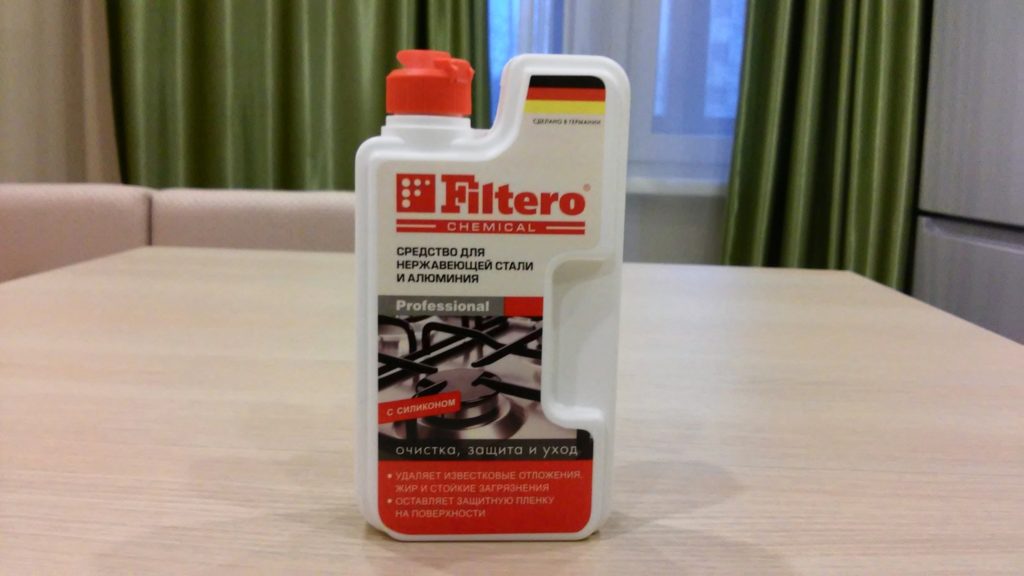
Folk remedies for glass-ceramic surfaces
Many people are afraid of chemicals and prefer to use affordable folk methods for cleaning. In this case, it is important to understand which means can be used and which are undesirable so as not to damage the fragile surface.Glass ceramics are resistant to chips, scratches and too aggressive gels and pastes.
The main cleansers are:
- soda;
- fine granulated sugar;
- salt;
- toothpaste.
Thrifty housewives believe that such ordinary pastes clean no worse than the most expensive household chemicals, and the cost is much cheaper.
Soda
Regular baking soda can remove a wide variety of stains and dirt. The cleaning mixture is prepared simply: you need to take 2 tbsp. tablespoons of baking soda and add a little water to make a slurry with the density of liquid sour cream. Apply this product to the glass ceramic surface, then leave for 15 minutes, after which all dirt and grease can be easily removed.
Salt and granulated sugar
Glass ceramics are very resistant to abrasives and exposure to particles with sharp hard edges can cause scratches. It is better to use salt and very finely ground sugar. Mixing process:
- Mix salt or sugar with a little water to make a thick mixture.
- Spread a thin layer over the surface.
- Remove grease and dirt
- Wipe dry.
Salt and sugar must be applied to fresh pollution, they will not cope with the old ones. After cleaning, the stove can be treated with a shine agent.
Toothpaste
First you need to remove all large food residues so that it does not interfere. And the composition of the paste should not have too many abrasives. Further:
- Apply toothpaste to stains.
- Spread thoroughly over the entire surface of the stain.
- Leave on for a few minutes and gently wash off grease and stains.
Wipe the surface carefully, without excessive pressure, so that there are no scratches and chips.Toothpaste polishes glass ceramics well, and it is not necessary to use a shine agent after cleaning.
Knowing which cleaning products to choose for glass ceramics, you can keep your household kitchen appliances spotlessly clean.
Popular Articles
-

Top ranking of the best and cheapest scooters up to 50cc in 2025
Views: 131656 -

Rating of the best soundproofing materials for an apartment in 2025
Views: 127697 -

Rating of cheap analogues of expensive medicines for flu and colds for 2025
Views: 124524 -

The best men's sneakers in 2025
Views: 124041 -

The Best Complex Vitamins in 2025
Views: 121945 -

Top ranking of the best smartwatches 2025 - price-quality ratio
Views: 114983 -

The best paint for gray hair - top rating 2025
Views: 113400 -

Ranking of the best wood paints for interior work in 2025
Views: 110325 -

Rating of the best spinning reels in 2025
Views: 105334 -

Ranking of the best sex dolls for men for 2025
Views: 104372 -

Ranking of the best action cameras from China in 2025
Views: 102221 -

The most effective calcium preparations for adults and children in 2025
Views: 102015